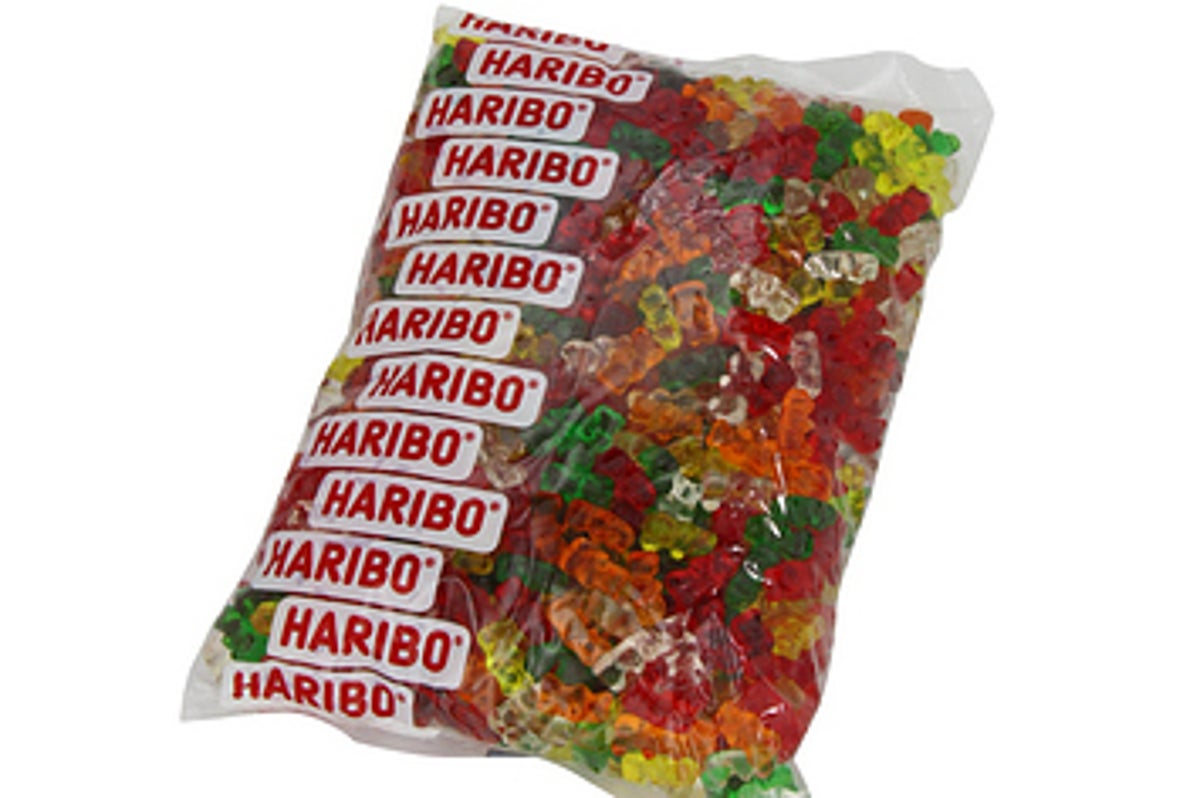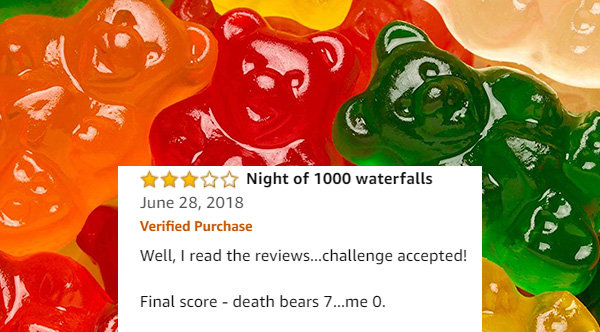When it comes to satisfying a sweet tooth, few candies evoke as much laughter—and caution—as Haribo’s Sugar-Free Gummy Bears. While marketed as a guilt-free treat for those seeking to reduce their sugar intake, customer reviews have revealed an unexpected truth: these seemingly innocent gummy bears can unleash a torrent of digestive woes. In this article, we explore the controversial reception of Haribo’s sugarless delights, share expert opinions, and delve into tips for enjoying sweet snacks healthily and responsibly.

amazon sugar free gummy bears review
The Sweet Allure of Sugar-Free Treats
Sugar-free gummy bears have garnered attention as a low-calorie indulgence. Many consumers turn to these treats as a way to keep their diets in check while still enjoying something sweet. According to nutrition expert Dr. Jane Smith, “Moderation is important, especially when consuming products containing sugar substitutes.”

amazon sugar free gummy bears review
What Makes Them Sugar-Free?
The sweetness in Haribo’s sugar-free gummy bears primarily comes from maltitol, a sugar alcohol that provides a similar taste profile to sugar without the associated calories. However, the effects of maltitol on digestion can be significant. As a general rule of thumb, the FDA recommends limiting sugar alcohol intake to about 50 grams per day. A single serving of these gummy bears can contain up to 22 grams of maltitol, making it essential for consumers to be mindful.
Concerning Customer Experiences
Amazon reviews for Haribo’s Sugar-Free Gummy Bears are notorious for their entertaining—and often terrifying—stories of digestive distress. One particularly memorable review lamented, “First of all, for taste, I would rate these a 5. So good. Soft, true-to-taste fruit flavors like the sugar variety… BUT, within moments, my gastrointestinal system was in complete revolt.”
A Cautionary Tale: The Side Effects
Many users report side effects ranging from mild discomfort to severe, cramping diarrhea. “I had never felt such simultaneous relief and anguish in my life,” joked one reviewer who detailed their misadventure post-consumption. This humorous approach to an unfortunate situation points to a larger issue with the consumption of sugar substitutes.
The Science Behind Sugar Alcohols
Health professionals have begun to sound the alarm over the effects of sugar alcohols in large quantities. According to Dr. Michael Brown, a gastroenterologist, “The human gut is not equipped to handle large amounts of sugar alcohols. For many, this results in gas, bloating, and diarrhea.” This has caused a surge of social media activity, with individuals sharing their own harrowing experiences after indulging in these gummy bears.
Are They Safe to Eat?
Haribo has included warnings on packaging about potential side effects, but many consumers still don’t expect the extreme reactions reported online. The key is moderation; indulging in a few gummy bears can lead to enjoyment, but overindulgence can lead to regrettable outcomes. The moral of the story is clear: everything in moderation, as advised by both health experts and those who have learned the hard way.
Alternatives to Haribo’s Sugar-Free Gummy Bears
If you’re craving gummy treats but wary of digestive fallout, consider exploring healthier options. Many companies offer gummy candies sweetened with natural ingredients. Products containing stevia or monk fruit are better alternatives for those looking to avoid the gastrointestinal distress associated with sugar alcohols. Additionally, homemade gummy recipes using fruit juice or purees can tickle your taste buds without unwanted side effects.
Incorporating Balance in Your Diet
The journey to self-love and maintaining a balanced lifestyle allows for some indulgence. Reinforcing positive eating habits is essential, as emphasized by wellness bloggers and health coaches. “Eating should be a joyful experience, not a guilt trip,” asserts wellness expert Sarah Lee. Finding a balance between enjoyment and health can elevate your self-care routine and keep your digestive system happy.
Expert Opinions: Navigating the World of Sugar Alternatives
Nutritionists often recommend being cautious with sugar substitutes. “They are not inherently bad, but their effects can vary from person to person,” explains dietitian Mark Thompson. “It’s crucial to be aware of how your body reacts and adjust your consumption accordingly.” The common theme among experts is moderation and self-awareness.
Consumer Awareness and Responsibility
Consumers must arm themselves with knowledge about what’s in their food. Before diving into any treats, it’s essential to read labels and understand what each ingredient could mean for your health. Health coach Emily Tran stresses, “Understanding food labels is the first step in taking control of your health journey.”
Reflecting on Health and Happiness
Ultimately, it’s essential to find joy in dietary choices, embracing sweet treats without compromising health. Listening to your body’s needs while enjoying your favorite flavors can pave the way to a sustainable relationship with food. Practicing self-love, in the end, helps foster healthy habits without the accompanying guilt.
Frequently Asked Questions (FAQ)
- What sweetener is used in sugar-free gummy bears?
- Why did Haribo discontinue sugar-free gummy bears?
- Are fat-free gummy bears healthy?
- Is xylitol in sugar-free gummy bears?
As entertaining as the reviews of Haribo’s Sugar-Free Gummy Bears may be, they reveal critical insights into consumer health, moderation, and the enjoyment of sweets. When indulging in treats, consider choices that align with your wellness goals but still allow you to savor sweetness without unpleasant consequences.